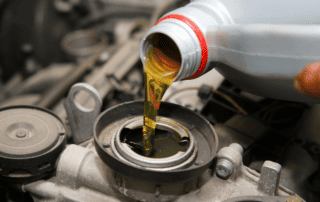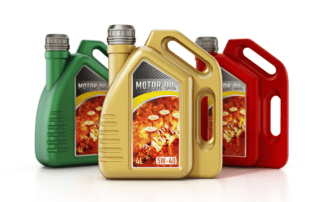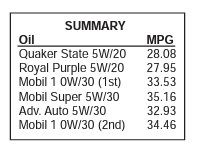To All the Oils I’ve Loved Before
I get asked on a regular basis what type of oil is the best, and we typically don’t give out recommendations because we see very little difference between brands. But that doesn’t mean I don’t have favorites. For me, there is a lot more that goes into picking a favorite oil than just how well the engine wears while it’s in use.
One factor is what Dad used. I can remember “helping” change oil with him back in the ’70s when the oil cans were round and you had to jab a separate spout into the can just to pour the oil out. Back then he was a Pennzoil man and I didn’t think to question why. So when I started buying my own oil and changing it, I thought about using Pennzoil, but being a bit of a rebel in my teenage years, I wasn’t going to do everything like Dad did.
I started out liking Texaco Havoline. It came in a cool black bottle and Texas was far away from Indiana so the oil was kind of exotic. I used it for years and my engine never blew up so it mast be good oil right?
Then I found Castrol GTX. Their white bottle wasn’t all that special, but they did offer a free NFL hat if you bought a case. That was an excellent reason to switch in my mind, and I still wear my Detroit Lions had with pride. (Yes, that’s right, I’m a Lions fan, and mark my words, they will win it all someday! If the Saints can win it, there’s always hope for the Lions.)
My engine ran for years on Castrol and never blew up, so that must be good oil right? Then Castrol quit offering hats, so it was time to switch, and I decided to try Quaker State. Made from sweet Pennsylvania crude, I’m sure. They had a cool green bottle and my engine never blew up using it, so it’s good oil.
But I was never completely sold on Quaker State, and when I found Wolf’s Head oil, I know it was time for a change. I’m not sure, but I suspect it’s made from the first pressing of dead wolves’ heads, and while the animal lovers might not approve, it’s better than Baby Seal Head oil, so I didn’t feel too bad running it. That oil seems to work just fine, my engine never blew up using it, but it was kind of out of the way for me to buy it, so I switched again.
This time I cheaped out and went with Meijer oil. For those who don’t know, Meijer is a big superstore like Wal-Mart, and after running a test on it, it turned out to have the exact same additive package as Castrol, my former favorite, so I was sold.
Until this point I had steered clear of non-name brand oils (their bottles aren’t very pleasing to the eye), but then I realized that big chain stores don’t really make oil, they just buy it from a major oil company and repackage it as their own. This revelation sold my father on Wal-Mart’s Super Tech oil and almost sold me on Meijer forever, but then my wife started doing all the shopping. I never made it to Meijer anymore, so once again it was time to switch.
Since then I have never really settled on one brand. Working at an oil lab, I’m interested to see what different oils people are using, so I switch on a regular basis and I mostly go with what’s on sale. Valvoline, Pennzoil, Mobil, it doesn’t really matter. I’m too cheap to go with synthetics, but I can still be swayed by a cool-looking bottle every now and then. And given my fondness for a low price, I recently found a new favorite oil.

All kidding aside, we really don’t care what oil you use. Some guys swear by this oil or that oil, but they all do the same thing and we honestly don’t see any appreciable difference in wear when people switch brands. We think oil is oil, and we’re sticking with it.






